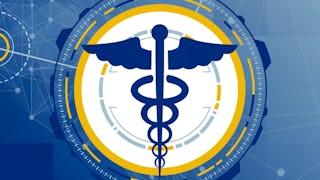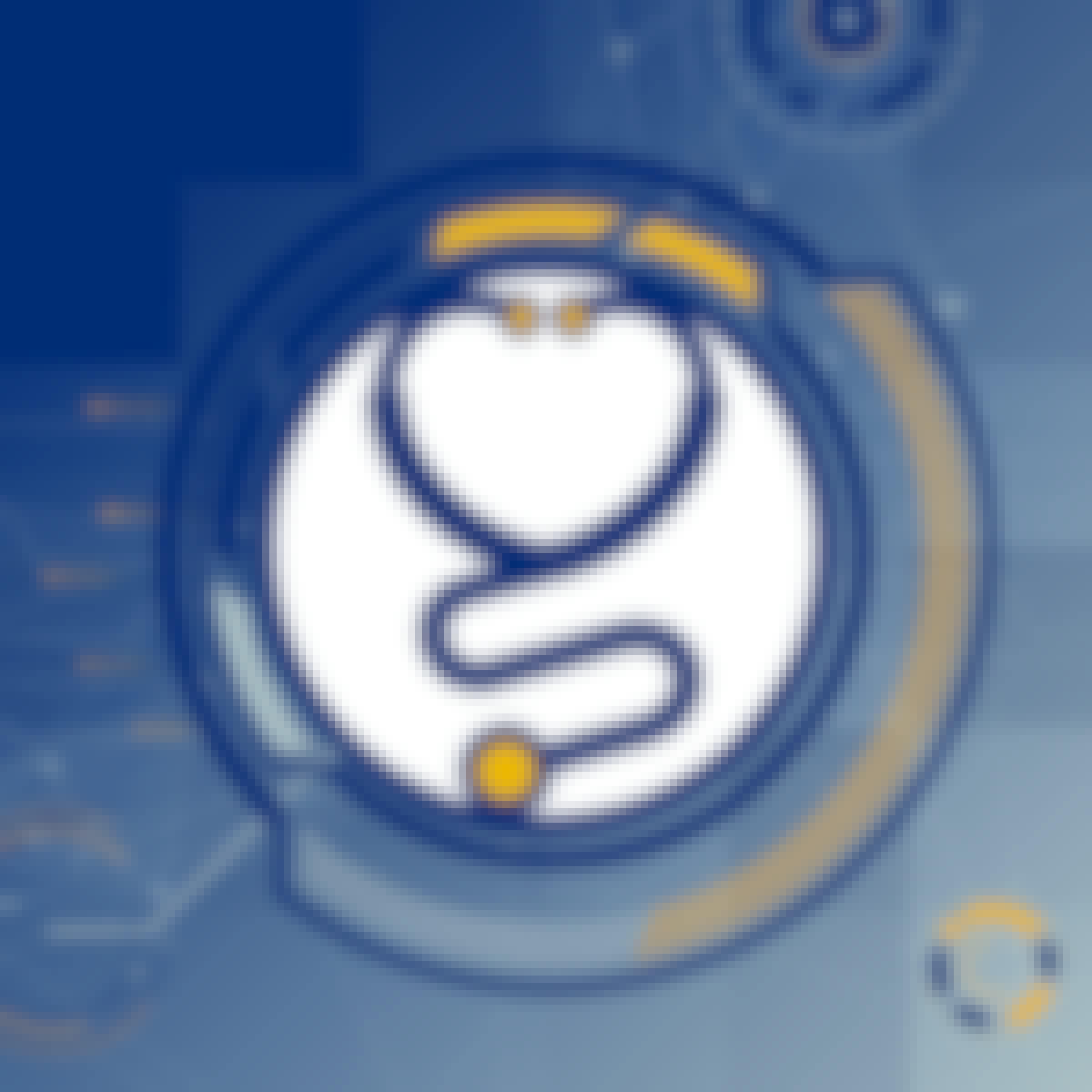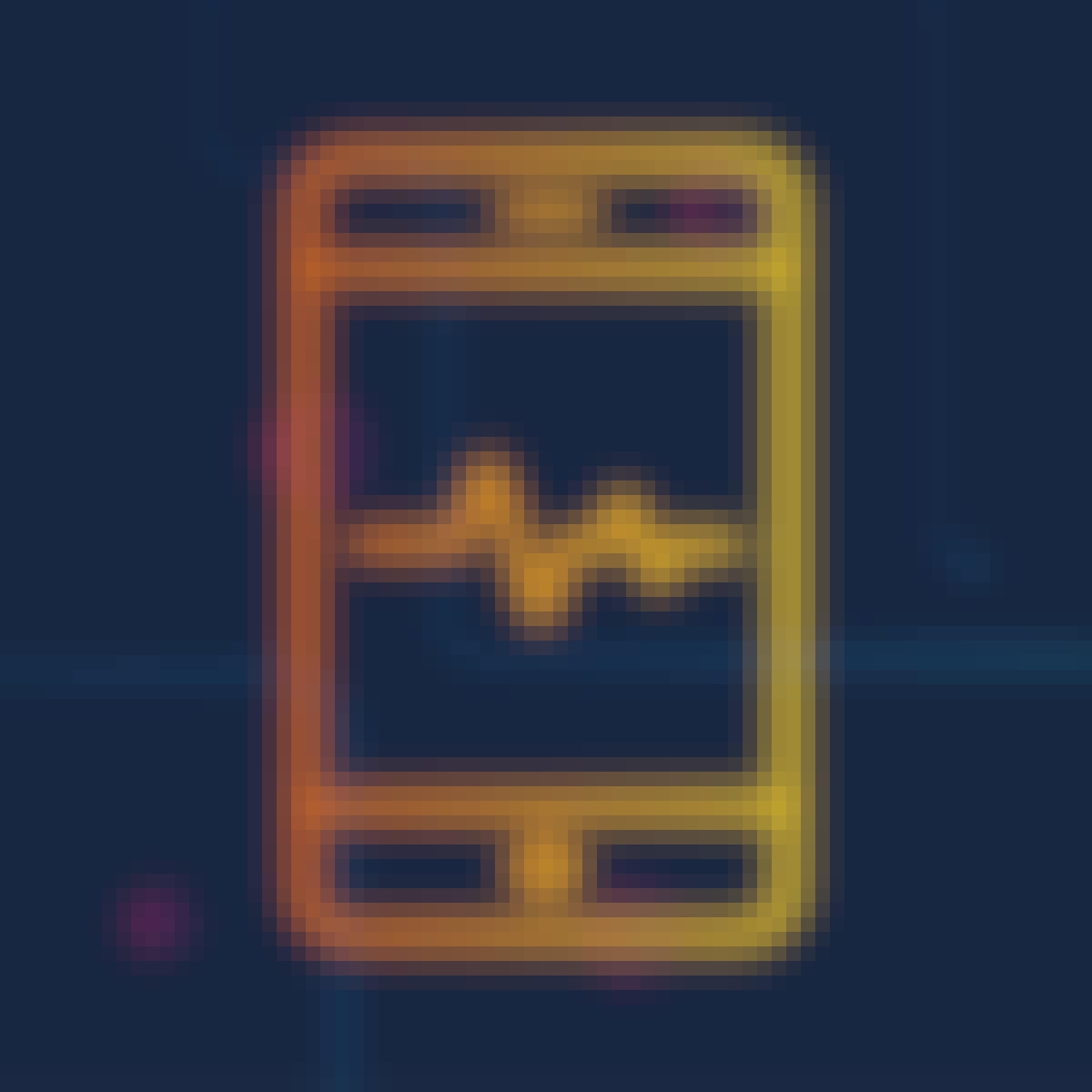- Browse
- Informatics
Informatics Courses
Informatics courses can help you learn data analysis, information management, user interface design, and programming fundamentals. You can build skills in data visualization, database management, and developing algorithms for problem-solving. Many courses introduce tools like SQL for database queries, Python for data manipulation, and software like Tableau for creating interactive dashboards, all essential for analyzing and presenting information effectively.
Popular Informatics Courses and Certifications
 Status: Free TrialFree TrialJ
Status: Free TrialFree TrialJJohns Hopkins University
Skills you'll gain: Health Informatics, Clinical Informatics, Healthcare Project Management, Health Technology, Change Control, Health Systems, Health Policy, Informatics, Health Care, Medical Records, Health Care Administration, Healthcare Industry Knowledge, Health Information Management, Clinical Leadership, Decision Support Systems, Solution Design, Health Information Management and Medical Records, IT Management, Electronic Medical Record System, Data Science
4.4·Rating, 4.4 out of 5 stars985 reviewsBeginner · Specialization · 3 - 6 Months
 Status: NewNewStatus: Free TrialFree TrialI
Status: NewNewStatus: Free TrialFree TrialIIllinois Tech
Skills you'll gain: Health Informatics, Clinical Informatics, Technology Roadmaps, Patient Flow, Public Health, Health Systems, Innovation, Health Care, Healthcare Project Management, Systems Integration, Data Analysis, Health Policy, Medical Terminology, Emerging Technologies, Data Management, Data Governance, Artificial Intelligence and Machine Learning (AI/ML), Machine Learning, Regulatory Compliance, Natural Language Processing
Intermediate · Specialization · 1 - 3 Months
 Status: Free TrialFree TrialJ
Status: Free TrialFree TrialJJohns Hopkins University
Skills you'll gain: Health Informatics, Health Care, Medical Records, Health Information Management, Clinical Informatics, Electronic Medical Record System, Databases, Data Analysis, Data Quality, Interoperability, Big Data, Query Languages, Data Science
4.6·Rating, 4.6 out of 5 stars229 reviewsBeginner · Course · 1 - 4 Weeks
 Status: Free TrialFree TrialU
Status: Free TrialFree TrialUUniversity of Minnesota
Skills you'll gain: Team Building, Clinical Leadership, Nursing Administration, Nursing Management, Team Leadership, Health Informatics, Education and Training, Clinical Informatics, Leadership, Professional Development, Nursing, Nurse Education, Health Care Administration, Learning Management Systems, Informatics, Health Policy, Innovation, Health Care, Interpersonal Communications, Conflict Management
4.7·Rating, 4.7 out of 5 stars337 reviewsBeginner · Specialization · 3 - 6 Months
 Status: Free TrialFree TrialU
Status: Free TrialFree TrialUUniversity of California San Diego
Skills you'll gain: Bioinformatics, Molecular Biology, Dimensionality Reduction, Unsupervised Learning, Data Analysis, Markov Model, Network Analysis, Biochemistry, Biotechnology, Life Sciences, Infectious Diseases, Microbiology, Statistical Analysis, Biology, Algorithms, Data Preprocessing, Machine Learning, Data Analysis Software, Data Mapping, Python Programming
4.3·Rating, 4.3 out of 5 stars1.3K reviewsBeginner · Specialization · 3 - 6 Months
 Status: PreviewPreviewN
Status: PreviewPreviewNNortheastern University
Skills you'll gain: Health Informatics, Health Information Management, Health Systems, Health Technology, Clinical Informatics, Health Care, Health Care Administration, Data Sharing, Electronic Medical Record, Interoperability, Decision Support Systems, Data Management, Data Storage, Artificial Intelligence, Digital Transformation
4.8·Rating, 4.8 out of 5 stars32 reviewsBeginner · Course · 1 - 4 Weeks
What brings you to Coursera today?
 Status: Free TrialFree TrialJ
Status: Free TrialFree TrialJJohns Hopkins University
Skills you'll gain: Electronic Medical Record, Clinical Informatics, Health Technology, Health Information Management, Decision Support Systems, Technical Support, End User Training and Support, Patient Registration, Databases, Change Control, Interoperability, Authentications
4.8·Rating, 4.8 out of 5 stars438 reviewsMixed · Course · 1 - 4 Weeks
 Status: Free TrialFree TrialJ
Status: Free TrialFree TrialJJohns Hopkins University
Skills you'll gain: Healthcare Project Management, Health Informatics, Clinical Informatics, Change Control, Health Care Administration, Clinical Leadership, IT Management, Strategic Leadership, Health Care, Decision Support Systems, Continuous Quality Improvement (CQI), Electronic Medical Record, System Implementation, Usability Testing
4.7·Rating, 4.7 out of 5 stars307 reviewsBeginner · Course · 1 - 4 Weeks
 Status: Free TrialFree TrialU
Status: Free TrialFree TrialUUniversity of Colorado System
Skills you'll gain: Tidyverse (R Package), Clinical Data Management, Extract, Transform, Load, Data Modeling, Clinical Research, Health Insurance Portability And Accountability Act (HIPAA) Compliance, Medical Privacy, Data Manipulation, Predictive Modeling, Database Design, Google Cloud Platform, Intensive Care Unit, Data Ethics, Data Quality, Natural Language Processing, Bioinformatics, Informatics, Text Mining, Clinical Informatics, R Programming
4.5·Rating, 4.5 out of 5 stars488 reviewsIntermediate · Specialization · 3 - 6 Months
 Status: Free TrialFree TrialJ
Status: Free TrialFree TrialJJohns Hopkins University
Skills you'll gain: Health Informatics, Informatics, Health Care, Healthcare Project Management, Systems Analysis, Business Systems Analysis, Technical Communication, Requirements Analysis, Data Access, User Centered Design
4.8·Rating, 4.8 out of 5 stars66 reviewsMixed · Course · 1 - 4 Weeks
 Status: PreviewPreviewP
Status: PreviewPreviewPPeking University
Skills you'll gain: Nursing, Nurse Education, Nursing Care, Clinical Informatics, Health Informatics, Nursing Practices, Informatics, Telehealth, Patient-centered Care, Computer Displays, Decision Support Systems, Information Technology, Electronic Medical Record, Patient Safety
4.8·Rating, 4.8 out of 5 stars13 reviewsIntermediate · Course · 1 - 3 Months
 Status: Free TrialFree TrialI
Status: Free TrialFree TrialIImperial College London
Skills you'll gain: Health Technology, Data Visualization Software, Telehealth, Agile Methodology, Health Disparities, Health Informatics, Health Care, Health Care Procedure and Regulation, Health Systems, Electronic Medical Record, digital literacy, Interoperability, Clinical Data Management, Public Health, Tableau Software, Model Evaluation, Data Ethics, User Centered Design, Technology Strategies, Analytics
4.6·Rating, 4.6 out of 5 stars351 reviewsIntermediate · Specialization · 1 - 3 Months
In summary, here are 10 of our most popular informatics courses
- Health Informatics: Johns Hopkins University
- Digital Healthcare Informatics and AI: Illinois Tech
- The Data Science of Health Informatics: Johns Hopkins University
- Nursing Informatics Leadership: University of Minnesota
- Bioinformatics: University of California San Diego
- Health Informatics for Healthcare Professionals: Northeastern University
- Health Information Technology Fundamentals: Johns Hopkins University
- Leading Change in Health Informatics: Johns Hopkins University
- Clinical Data Science: University of Colorado System
- Culminating Project in Health Informatics: Johns Hopkins University
Frequently Asked Questions about Informatics
Informatics is the science of processing data for storage and retrieval. It plays a crucial role in various fields, including healthcare, education, and business, by transforming raw data into meaningful information. This transformation is essential for making informed decisions, improving efficiency, and enhancing the quality of services. As data continues to grow exponentially, the importance of informatics in managing and analyzing this data becomes increasingly vital.
Careers in informatics are diverse and can be found across multiple sectors. Common job titles include health informatics specialist, data analyst, clinical informatics coordinator, and information systems manager. These roles often involve working with data to improve processes, enhance patient care, or streamline operations. With the growing reliance on data-driven decision-making, opportunities in informatics are expanding, making it a promising field for job seekers.
To succeed in informatics, you should develop a mix of technical and analytical skills. Key skills include data analysis, programming (often in languages like Python or R), database management, and an understanding of information systems. Additionally, soft skills such as communication, problem-solving, and critical thinking are essential, as they enable you to effectively collaborate with teams and convey complex information to stakeholders.
There are many online courses available for those interested in informatics. Some notable options include the Health Informatics Specialization and the Nursing Informatics Leadership Specialization. These courses cover foundational concepts and practical applications, making them suitable for both beginners and those looking to enhance their skills.
Yes. You can start learning informatics on Coursera for free in two ways:
- Preview the first module of many informatics courses at no cost. This includes video lessons, readings, graded assignments, and Coursera Coach (where available).
- Start a 7-day free trial for Specializations or Coursera Plus. This gives you full access to all course content across eligible programs within the timeframe of your trial.
If you want to keep learning, earn a certificate in informatics, or unlock full course access after the preview or trial, you can upgrade or apply for financial aid.
Learning informatics can be approached through various methods. Start by enrolling in online courses that match your interests and career goals. Engage with interactive content, participate in discussions, and complete hands-on projects to reinforce your understanding. Additionally, consider joining online communities or forums related to informatics to connect with others and share insights.
Informatics courses typically cover a range of topics, including data management, health information systems, data analytics, and user experience design. You may also explore specialized areas such as health informatics, public health informatics, and clinical informatics. These topics provide a comprehensive understanding of how to leverage data effectively in various contexts.
For training and upskilling employees in informatics, courses like the Applied Public Health Informatics for Leaders and the Health Informatics for Healthcare Professionals are excellent choices. These programs focus on practical applications and leadership skills, making them ideal for professionals looking to enhance their capabilities in the workforce.










